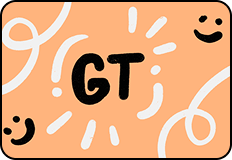Encryption and security: interview with Anton Perelygin

The banker’s etiquette from 1775 says: “Protect your investments.” This rule can be applied to financial literacy and intellectual property protection. But what about those who constantly have to stay in the media spotlight?
Are there cases when overly strict security measures interfere with business? How can an entrepreneur build trust in the digital world? Will it be possible to create a 100% secure digital space in the future, or is it a utopia?
We asked these questions to the founder and CEO of “PZ Consult” LLC, expert in grant competitions, Anton Perelygin.

— Anton, thank you very much for agreeing to come for an interview. With your help, we would like to know: can encryption protect freedom of speech in the media space?

— I’ll be happy to help you with that.

— Anton, you interact with many entrepreneurs. How can encryption fulfill its role and help all entrepreneurs get closer? And is it even necessary to become closer to each other in the current realities?

— There have always been cliques and gatherings, both among entrepreneurs in different niches and regular people: one tribe lived in one place, another tribe lived in a different place, and so on. Nothing has changed since those times. As Woland said in a famous work: “People don’t change, they’re only spoiled by the housing issue.” A cipher, in itself, is a symbol, and any symbol carries some kind of meaning. As we now have more information, we also have many more ciphers.
We now have the ability to make calls over the internet to the entire world. To do this, certain protocols are used, which are also ciphers. They understand each other. Again, there are fully decentralized systems built on encryption so that no part can be stolen and taken elsewhere.
Ciphers have always been, are, and will be, and divisions into groups will also continue, but being together is necessary in any case. Because a person is a social being, and without society, they cannot survive for long. Moreover, our systems are structured in such a way that we will inevitably have to communicate with each other. Even if someone suddenly needs to go into the forest to fully experience freedom from humanity, progress, and everything else, it will turn out that the forest has an owner. And the forest is in the cadastral register. And the cadastral register is also a cipher. In the language of an ordered list of important objects, this forest looks like a set of certain numbers, zeros, ones, letters, and other symbols.

— Maybe you have some examples of how encryption can build trust?

— Do you know this phrase? “We have plenty of techniques, but no one understands them.” I use EDI (electronic document management), which is also protected by a certain encryption protocol. Since I run an LLC, everything is, in one way or another, linked to the Federal Tax Service. So, if I need to get a document from the Tax Service or if the Tax Service needs something from me, I use EDI – fast and very simple. But there’s a nuance, because in such conditions, I always have to have a flash drive and a computer from which I send everything. And here we come to limitations, and of course, the possibilities of encryption. The fact that limitations should also be technologically advanced.
Yes, we can encrypt through letters and symbols, invent ciphers tied to books – paragraph 5, line 17, page 77. But unfortunately, the Federal Tax Service and other government agencies don’t want to work like this. How come? It’s the 21st century. So, if something happens and I need to confirm documents, I always need to have a laptop, or a computer, or some device to store the flash drive. Without this, the system doesn’t work.

— You could probably use a web version.

— Of course. But any monopolist, like Google, can switch to a different level of service and require the installation of the latest version, while stopping support for the previous one. This will be available, but not for everyone. Again, I just want to send a document and want the process to be under control, but I still have to depend on someone. And this process could be simplified – exchange keys and that’s it.

— Anton, thank you for your answer. You’ve just touched on an important point – on one hand, there are tools in the world that can, thanks to encryption, ensure secure interaction between different entities. Now, if we imagine the internet as a whole. Is anonymity good or bad?

— Let’s start with the fact that anonymity is a goal, and we need to understand what we want to achieve. If I am a blogger, I want to be a celebrity, do I need anonymity? Maybe yes, to protect my private life. But if someone, as a blogger, wants to steal something from me, then anonymity is not necessary. So, what should be done in this case? If we are discussing anonymity on the internet, we need to realize that the internet itself is a subject. If a data leak happens, who will be punished? The object. The provider, the user of a specific account, and so on. But the internet itself is just an abstraction with a certain number of different protocols.
Am I happy that someday there will be an internet where there will be no anonymity at all? Probably not. Considering that data leaks still happen, no matter how perfect the protocol is. And neither a nickname, nor multi-step authentication, nor relying on higher powers can protect us from this. Who needs this and why is a big mystery.

— Okay. So, it seems that life was simpler in a world without the internet, and data was better preserved. Maybe we should return to that time?

— There are many examples in history that show what such restrictions can lead to. And not always are those examples positive. Any iron curtain is also a tool for achieving a certain goal. At the same time, any technique, any process is also a tool. This is the whole paradox. For example, within my system, within my processes, I can make sure that communication with everyone is minimal. But why?
Why limit certain possibilities and impose taboos? It is unclear. At the same time, why allow everything? If we talk about encryption in the context of limitations, culture itself may at some point become a taboo. If I swear on public transport and behave provocatively, I will be called an uncultured person. This is already a classification, a criterion. But history knows examples where specific criteria were invented for the greater good, and there were always those who figured out how to bypass these criteria. For example, when people were restricted from consuming alcoholic beverages, it didn’t mean that they drank less, but the number of poisonings with ethyl alcohol increased dramatically. This shows that if someone feels restricted, they will look for ways out, and of course, they will find them.
If we talk about culture, we can recall times when some authors were banned, but people still read them, listened to them at specially organized events, passed them on, including through various methods of encryption, copied them, and so on. Because they considered these bans unfair.
It is impossible to completely control people, alas. But every system has its Achilles’ heel.

— So, the loss of certain data that occurred as a result of leaks and various types of internet attacks can be considered the price for free communication on the internet, for the accessibility of any information, and for technological progress in general?

— That’s right.

— Thank you. Anton, since we started talking about history, it knows examples of authors who intentionally encoded their messages to bypass state or human censorship. Is this still relevant today?

— Yes, absolutely relevant. Again, if we look back at history, we can recall symbolism, Nikolai Gumilyov, and what happened to him. Now symbolism has taken on different scales, and now, hiding behind it, you can do whatever you want.
Here’s an example. I love listening to music, and just recently I was struck by the lyrics of a contemporary artist. The song was about how great it is to have ice around your neck. Can you imagine someone having ice around their neck, and it evokes such strong emotions that they even want to write a song about it?

— No.

— I found it hard to imagine too. So I checked various dictionaries and translators, and it turned out that “ice” is a slang term for diamonds. “Hey, I’ve got ice around my neck, showing my status and greatness.” Does a diamond resemble ice? Sometimes, yes, but overall, no. It’s hard to immediately make the connection and understand what it’s about. And such techniques allow you to hide anything under associations, symbols, and everything else.

— Maybe that’s why it’s become harder to advertise certain things now.

— There’s another example: cooperatives, which can’t be promoted in any way, because they can be used as a non-commercial organization created for a specific purpose, but at the same time, you can earn money in a cooperative. The most famous example of a cooperative is MMM.

— And if we look at this from another perspective? Can encryption protect meaning and freedom of speech in the media space? Will this truly be important and in demand?

— This has always been important and in demand. Encryption itself, symbols, symbolism in general — it’s neither bad nor good. It all depends on the system and on which side of the system a person is on. The slang terms I mentioned are bright markers of someone else’s will. Do you understand me when I say the word “ice,” or do you not?
We humans have all sorts of instincts, including animal ones. And such encrypted markers can help us understand what kind of person is in front of us — “one of us” or “an outsider.” If you understand me, then you’re one of us.
If I say the abbreviation “SK,” everyone will think of it differently. Some will think I mean an insurance company, some will think I’m talking about a tracksuit, and others will assume I mean the company Calvin Klein.
Who do I belong to? Am I part of the world of fashionistas, or am I an entrepreneur who needs to insure his investments?
Or here’s an abbreviation: “SMEs.” What does that mean? If someone who’s constantly in our niche hears it, they’ll understand that we’re talking about small and medium-sized enterprises. Someone else might take a while to figure it out. And I’ll immediately know who’s sitting in front of me and what to say to that person. This kind of marker clearly shows a person’s development in a particular field, and sometimes that’s really important.
The more knowledge, the more symbols, the more codes. That’s how it works.

— In general, how is the media’s work changing in a world where data can be stolen, forged, or encrypted?

— Protection itself is aimed at preventing certain situations. Therefore, commerce begins to calculate risks — this is exactly what risk management is about.
As a specialist in information security, who deals with all this, and as a leader, I always assess the risks. I hire someone, but what if they find out some information? What will they do with that information? I need them to sign an NDA. I need to give them some information like this, perhaps confuse them a little, or give them information in such a way that they don’t understand it. And commerce always operates this way. If commerce doesn’t think about future risks, the probability that it will suddenly come to an end is extremely high. In the end, business will survive if it engages in risk management and evaluates its actions.

— Your answer actually anticipates my next question. Anton, you work a lot with young entrepreneurs. How aware are they of the importance of information protection?

— The whole issue is that when you’re running a business, your main focus is on how to make money. Because a client won’t pay you just for existing. You have to provide a certain set of services. To provide these services, you need to understand where to start, how to move forward, and what the expected result will be. You need to understand how to work with people, with your team, with clients, how to build processes, how to grow your company. And when should you think about risks? There’s no time for that. Only with experience do you start realizing: where the risks are, where you can get burned. This experience consists of two parts: what you managed to do and what you didn’t.

— Knowing these features of young and experienced entrepreneurs, maybe we should give them a couple of tips on protection and security?

— I’ll start by saying that among entrepreneurs, there’s this idea that you can’t share anything because someone might steal something. I’d like to ask: My God, what are they going to steal from you? Your contacts? Your business model? Are you afraid of that? Fine. But the point is that your business exists only because you are who you are. You’ve found the key to your client. So someone comes, maybe they copy something from you. The likelihood that they will create the same business is extremely low. They might lack different skills. Don’t be afraid to talk about yourself.
Because when a niche forms, it’s much better for development than when you’re trying to do everything yourself. One example is Apple. Yes, they spent billions of dollars to create Touch ID. By the way, Touch ID technology is also encryption. What did Chinese companies do? They just copied it, and now this feature is in every phone. Then Apple came up with the Face ID technology. We all know what happened next. Did iPhone sales drop because of that? No, they didn’t. People started to understand what the technology was about, they began to trust it, and after that, it was just a matter of choosing between iPhone or not. But if they didn’t trust it, how many years would have passed before Apple could sell all of this? And we don’t even know what technologies they currently have that are still under wraps because the market isn’t ready for them.
Young entrepreneurs just need to think about what’s next. Ask questions, learn, and develop. Questions about documents — that’s not the hardest thing. Questions about accounting — that’s not the hardest thing. Questions about working with clients — that’s not the hardest thing either. The hardest part is acquiring the skill of thinking several steps ahead.

— Modern times require modern approaches. It’s no secret to anyone that in the talk shows, which are widely broadcast to us with a call to support our favorite contestants, the winners are already known. Nowadays, very few people write songs or compose music for them by themselves. Authors who are capable of writing their own books can be counted on one hand. And because of this, the audience often experiences disappointment.

— This is also a question of anonymity, of revealing anonymity. Each of us has our own roles. For example, I have a gift for gab, and in general, I enjoy communicating with people. My whole life is built around this, and that’s normal. There are people for whom this amount of communication is simply not needed. Does this make us bad people? No. Does it make us good people? Well, no, not necessarily. Some people can write books, some cannot, so they use someone else’s services. But it’s important not to forget that public life remains in the spotlight, and it’s easy to figure out whether a person wrote it themselves or sought help: from their behavior on the internet, sentence structure, speaking style, and many other things.

— Anton, we have one last question. Is there something hidden in your life that you would never decrypt, even if you had the key?

— That’s an interesting question because right now I’m in the middle of my own transformation, so I’d like to say: “Yes. Open it up, look at it, if something interests you, we can discuss it if needed.” But I don’t think I’m ready for that door to open. After some time, maybe I’ll be ready, but you’ll have to ask me about it then.
Information security has taught me the importance of a comprehensive approach. In general, I can now go out to an audience in any form, just like you, but why would I do that? To entertain people, to fool around? In the long term, that’s unlikely to turn out to be something positive, for both sides. I can bring value in another way — by showcasing my expertise in a specific area where I have experience. Someone might choose a different path. There’s a common saying that comes to mind here, which involved French pirates and English captains. During a battle with the pirates, the captain shouted at them: “I defend the honor of my country and protect its citizens! And what are you fighting for? For money?” To which the pirates responded: “Those who lack something, fight for it.”
The point here is something else. Are you ready to see the truth even when you have the key? If I can inspire young entrepreneurs, I am ready to come out and share all my successful and unsuccessful cases. But only I will know how hard or easy it all came to me. Will it be considered that someone decrypted me? Probably not.
I have a company, simply put, I’ve gathered a group of people. The company has a Charter, which regulates how these people will exist, what they will interact and communicate for. The Charter states that a limited liability company is created for profit. So, if I don’t make a profit, the company will be considered inefficient and unprofitable. I have a document we work by, I have a website, a logo, there’s me, there are other people who communicate with my clients. And you form some image from that. But what happens inside the company is something only I know. And no matter what I tell you, the truth will only be revealed when you become a part of my company and experience it with me.
Anyone can talk about how they have cases worth billions and so on, but fail to mention that in order to achieve those billions, they had to bury projects worth even more billions. And lead a crowd along the way. Do I need this? Does the person realize that by creating an image of a fake expert for themselves, they will have to constantly feed the furnace with news, achievements, and new facts? Some understand, some don’t. So isn’t it easier to instead spend time and resources on being real, building your business with mistakes, experience, and unrestrainedness, which you can encrypt, and only you will know about?
There should always be a question: “What are we doing and why are we doing it?” We should always remember this. For this situation, I have a certain phrase…


— Anton, shall we encrypt it?

— Of course! And it sounds like this:CT AC GA AG TA AG GC CC TT GT AG CT TT TA AC TT GT AC GA TT? Or like this: H3 C2 H4, D3 E1 D4 F1 A3 G3 A1 G2 C3 G2 D1 A3?
The double-slit paradox awaits you! Learn from particles how to act mysteriously and unpredictably.
Thank you!




